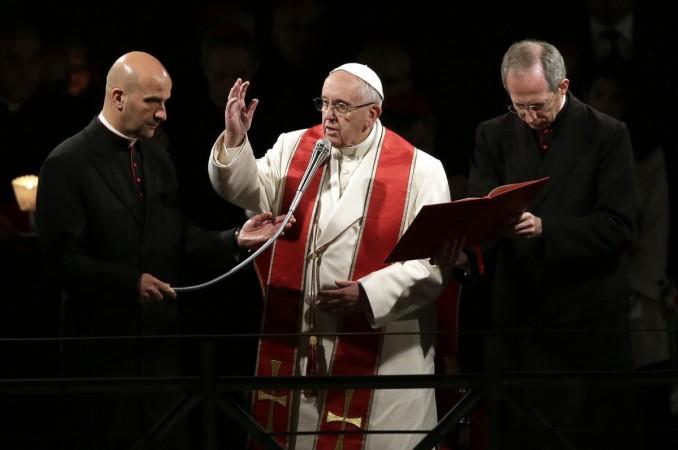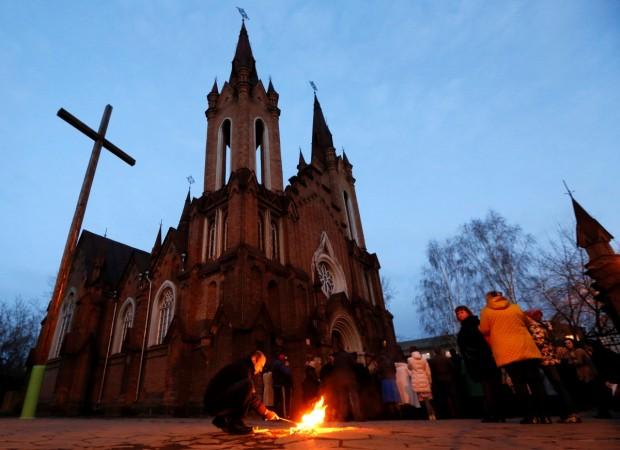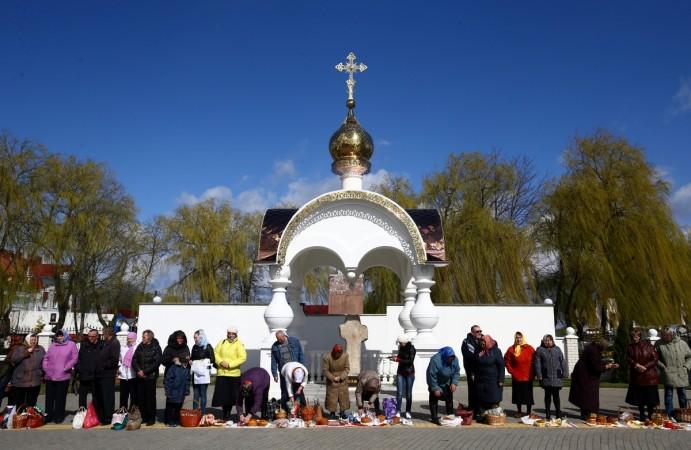
Easter is the most important festival for Christians as it marks their faith of life after death which was affirmed by the resurrection of Jesus Christ three days after He was crucified on the cross. All Christians around the world used to celebrate the feast on the same day, as it was observed on the Sunday following the full moon which falls either on or after the equinox (March 21). However, it changed when the Catholic and Orthodox Churches split in 1054.
Pope Gregory XIII adopted a new calendar, which later came to be known as Gregorian calendar, for all Catholic countries across the globe as the Julian calendar has irregularities in the time – 11 minutes late to be precise – thus Easter didn't go in sync with the season over centuries. Most of the protestant churches, including Anglicans, Baptists, Pentecost and several others followed Gregorian calendar, and thus celebrate Easter on the same day as the Catholics. However, Orthodox Churches continued to use the Julian calendar, leading to different date for Easter Sunday.
Also read: 25 best quotes, sayings, bible verses and wishes to mark Holy Week
Most Protestant denominations follow the Easter date set by the Vatican, which could be attributed to their roots that lead to catholic. An attempt was made in 2009 to standardise the date of Easter but failed. However, the Catholics and Orthodox Christians will celebrate the feast on the same day, April 16 this year as calculations of their divergent calendars lead to the same date.

For Catholics and Anglicans, Easter is celebrated after 40 days of penance called "lent" which begins with Ash Wednesday to commemorate 40 days and nights Jesus Christ spent in the desert ahead of his crucifixion and resurrection. Both the churches observe holy week which starts on Palm Sunday, followed my Holy Thursday to commemorate Jesus' last supper with His apostles that includes "foot washing" ceremony. Good Friday is observed in penance and fasting to mark the crucifixion of Jesus before the Easter vigil mass is celebrated on the night of Saturday to mark his resurrection.
The faithful attend Mass on Easter Sunday morning followed by sumptuous meal with family members and exchange Easter eggs. Most Protestant churches, including the Baptists and Pentecost observe the Palm Sunday, Good Friday and Easter Sunday. Exchanging of Easter eggs is common to all the Christian denominations.
Many Orthodox Christian churches, including the Greek Orthodox and the Russian Orthodox churches, celebrate Easter based on the Julian calendar, so they celebrate on a different date (this year is an exception) but their Easter preparation begins 40 days prior to Easter Sunday like the Catholics and Anglicans. They also observe these days in strict fasting and holy fire ceremony on Saturday night -- the night Jesus was believed to have risen from the death.
Orthodox Christians have the tradition of laying Easter eggs and bread on the graves of the deceased relatives to mark the resurrection of Jesus Christ. Greek Orthodox Christians has the tradition of rubbing their hard-boiled eggs against that of their friends' and the owner of the last uncraked egg is considered lucky. Food baskets that have bread, cheese, meat, eggs, butter etc that are used for Paschal celebrations are also blessed during the occasion besides feasting with meat and dairy products.

Easter date and manner of celebration may different from one Christian denomination to another but the principle is the same – celebrating the resurrection of Jesus three days after He was crucified on the cross.

















